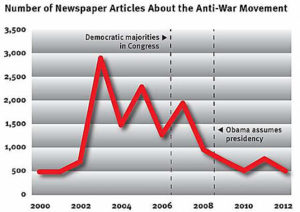Though I voted in the 2000 presidential election, 2004 was the first I paid very close attention to and got involved. When rationalizing to my John Kerry-loving teacher colleagues aghast I supported George W. Bush, I often said I simply want more dead terrorists. So last week when President Joe Biden ordered airstrikes against military installations belonging to Iranian proxies in eastern Syria, I was pleased at the effort.
I also agree with Sen. Tom Cotton, who said during a Friday interview:
“My position on confronting Iran and retaliating when they attack Americans has been consistent through the presidencies of Barack Obama, Donald Trump, and now Joe Biden. Iran-controlled militias have repeatedly launched rocket attacks against American positions in Iraq over the last few weeks, and it was vital that we retaliate. It’s to be determined or not whether these strikes were actually a show of strength, which is what we needed, or a feckless attack that was disguised as a show of strength. It’s too early to know without a damage assessment, but anytime Iran attacks Americans, there has to be a price to pay.”
It took a full week for the Biden administration — which has been subpar on Iran — to respond to the rogue regime’s latest murder. But similar to President Trump’s actions four years ago in Syria, it’s now done, and that’s good.
The usual discourse followed.
Let’s realize we are at this juncture of debate and confusion because Congress does not want to review the 2001 AUMF.
A lot of the authorizations from two decades ago are irrelevant to today, so review it and take a stand. Authorize it again, which risks soldiers’ occasional deaths, or pull out and accept the consequences, which also can include deaths, likely of civilians. You folks are in Washington to make the hard, uncomfortable calls, not to perform stunts and push extremist measures.
If you only want popularity and to spout redundant clichés, go be Sean Hannity, Rachel Maddow, Alexandria Ocasio-Cortez or Matt Gaetz.
“I think the Iranians are always going to test a new regime. And when Iranian proxies are putting our troops in Iraq in harm’s way, there needs to be punitive actions taken,” former Democrat Rep. Jane Harman said on Fox News Sunday. “And I think the Biden missile launch was appropriate pushback against the Iranian proxies. There needs to be a guarantee that we’re going to protect our troops.”
As I explained last week, “forever wars” — a logical fallacy the left and the isolationist right uses — is balderdash.
We have 2,500 troops in two strategic places; that’s not full withdrawal, but it’s as small a force as possible. Democrats transparently and hypocritically stopped criticizing war efforts around January 20, 2009. It was rank partisanship.
From mid-2007 to late 2008, anti-war rallies shrank from hundreds of thousands of people to only a few hundred.
Politico reported on its rapid demise in 2010.
“Just a few years ago, some groups raised millions of dollars in donations and mobilized legions of supporters … now, UFPJ — which had a full-time staff and a budget of more than $1 million — relies on volunteers working without a headquarters and with less than $100,000 to spend.”

Beginning in early 2009, Democrats had a filibuster-proof majority in the Senate, and the president was a radical whose candidacy promised to “turn the page on dumb wars.”
Yet Barack Obama broke his naive campaign-trail pledge to bring the troops home. Bush simply wanted the next president to negotiate a reduction in forces agreement. He did not believe a withdrawal was appropriate. Obama then intentionally caused the negotiations with Iraq to fail so he could withdraw and blame Bush. Rather disturbing and all political.
Obama also ordered an Afghanistan surge on a much larger scale than his predecessor (successfully) carried out in Iraq; three times more U.S. troops died in Afghanistan during Obama’s first term than the toll over Bush’s two terms.
It’s all a reminder how politicking and ranting to friendly audiences is different from governing.
A.J. Kaufman
A.J. Kaufman is an Alpha News columnist. His work has appeared in the Baltimore Sun, Florida Sun-Sentinel, Indianapolis Star, Israel National News, Orange County Register, St. Cloud Times, Star-Tribune, and across AIM Media Midwest and the Internet. Kaufman previously worked as a school teacher and military historian.

















